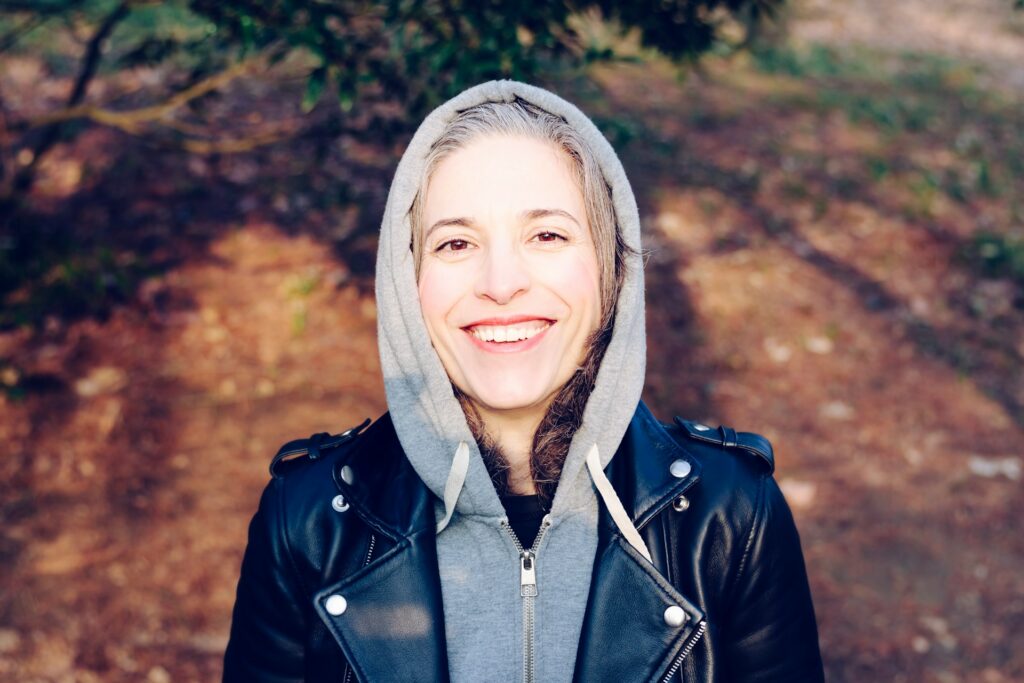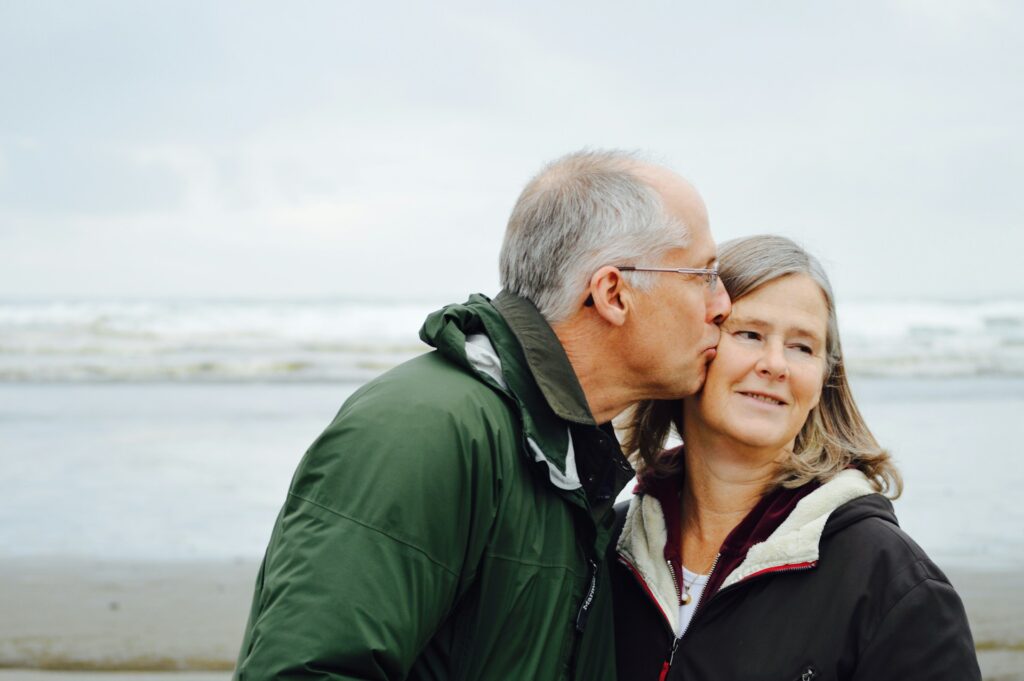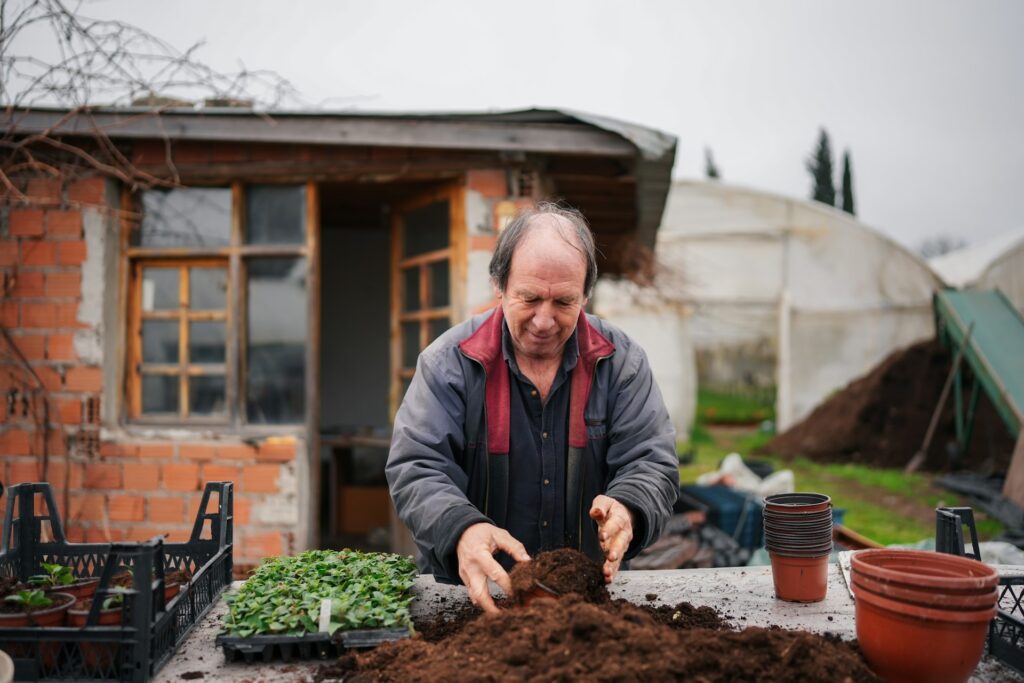If you’ve noticed yourself or someone you know becoming more introverted with age, you might be puzzled or even concerned. Isn’t socializing supposed to be the key to happiness and longevity? Turns out, there are plenty of valid reasons why people might turn inward as they grow older — and it’s not always a bad thing.
1. They’ve figured out who they are.
 Source: Unsplash
Source: Unsplash
As people get older, they gain a stronger sense of self. They’re no longer as eager to please or conform to social expectations. If their authentic self is more introverted, they’re comfortable leaning into that. They don’t feel the need to fake being outgoing to fit in. With age comes the confidence to embrace your natural disposition, even if it means more time alone, Red Magazine confirms.
2. Their bodies need more recovery time.
 Source: Unsplash
Source: Unsplash
Socializing can be physically taxing, especially as you age. Late nights, loud noise, and alcohol take a bigger toll. Older people may find they need more solitude simply to rest and recharge. A weekend of partying could mean a week of recovery. Introverted activities like reading or puttering quietly become more appealing when your energy is limited.
3. They have more responsibilities.
 Source: Unsplash
Source: Unsplash
As people age, their plates often become fuller with work, family, and community obligations. The precious free time they do have feels more valuable. They may prefer quieter, restorative activities over hectic social schedules. When your days are drowning in mandatory human interaction, choosing low-key solo pursuits in your off hours doesn’t mean you’re antisocial — just selective.
4. They’ve found their tribe.
 Source: Unsplash
Source: Unsplash
Younger people typically cast a wide social net as they figure out where they belong. With age, people tend to hone their circle to a few true-blue friends who share their values and interests. Rather than flit between packed parties and superficial chitchat, they opt for intimate dinners and deep talks with their inner circle. Quality connections become more fulfilling than quantity, Psychology Today explains.
5. They crave more intellectual stimulation.
 Source: Unsplash
Source: Unsplash
As people mature, many find they want to engage with ideas more than with idle gossip. Discussions about philosophy, politics, or art feel more compelling than rehashing reality TV or office drama. If they’re not finding that stimulation socially, they may retreat inward to pursue it through study, reflection, or solo projects. The drive for knowledge can eclipse the drive to socialize.
6. They’ve been burned by toxic people.
 Source: Unsplash
Source: Unsplash
Most people rack up some relational battle scars by midlife. If they’ve endured too many draining friendships, catty cliques, or betrayals, they may approach new people more cautiously. Once bitten, twice shy. It’s not that they’re misanthropic — they just have a lower tolerance for drama and a keener radar for red flags. Solitude feels safer than risking more pain.
7. They’re in a life transition.
 Source: Unsplash
Source: Unsplash
Big life changes like divorce, retirement, relocation, or illness can make people turn inward. Grappling with mortality or an uncertain future often sparks a desire for self-reflection over socializing. People may cocoon while they process their emotions and reevaluate their priorities privately. It’s not a permanent shift, but a necessary period of recalibration.
8. They’ve achieved their social goals.
 Source: Unsplash
Source: Unsplash
Many people feel intense pressure to couple up, build a family, or cultivate a lively friend group when they’re younger. Once they’ve checked those boxes, the urgency to mix and mingle subsides. With their core constellation in place, they can relax into homebody mode without FOMO. They still enjoy their people, but don’t feel compelled to constantly add new ones.
9. Their senses and nervous systems change.
 Source: Unsplash
Source: Unsplash
As people age, they often become more sensitive to stimuli like bright lights, loud sounds, and strong smells. A buzzing bar or crowded festival may feel more overwhelming than energizing. If the physical environment feels assaultive, they may opt out of certain social outings in favor of mellower solo activities. It’s more about self-preservation than being a shut-in.
10. They’ve soured on superficial schmoozing.
 Source: Unsplash
Source: Unsplash
When people are younger and building careers, they may feel pressure to network intensively and mesh with various personality types. With seniority and job security, glad-handing loses its appeal. They’ve logged enough hours talking shop over tepid canapés. Given the choice, they’d rather work quietly in their offices than yuk it up at industry mixers.
11. They’ve gotten pickier about how they spend their time.
 Source: Unsplash
Source: Unsplash
Kids will hang out with anyone to avoid boredom. Adults are more willing to be alone than with subpar company. If they’ve landed in an uninspiring social scene, they’d rather stay home and live richly in their own imaginations. They won’t settle for second-rate connections or lackluster recreation options. Voluntary solitude beats unsatisfying socializing.
12. They’ve developed more solo hobbies.
 Source: Unsplash
Source: Unsplash
If people have spent decades cultivating absorbing interests that don’t involve others, those often take center stage later in life. Gardening, woodworking, writing, or model building require uninterrupted concentration. Alone time stops feeling lonely when it’s full of personally meaningful projects. The urge to create wins out over the urge to cocktail party hop.
13. They’ve gotten more protective of their privacy.
 Source: Unsplash
Source: Unsplash
Most people have accumulated some baggage by midlife — divorces, bankruptcies, addictions, feuds. They may not want to be an open book, rehashing their history with every new person they meet. Holding back doesn’t mean they’re embarrassed or antisocial — they’re just not willing to be totally transparent. Keeping their own counsel is a mark of hard-earned wisdom.
14. Their priorities have evolved.
 Source: Unsplash
Source: Unsplash
Where younger people might use socializing as a way to shape their identity and gain status, older people’s values often shift to simplicity, serenity, and inner growth. Material things and others’ opinions lose sway. Spending a weekend meditating, journaling or communing with nature feels more meaningful than hitting the club scene. It’s not being a hermit — it’s being at peace.





